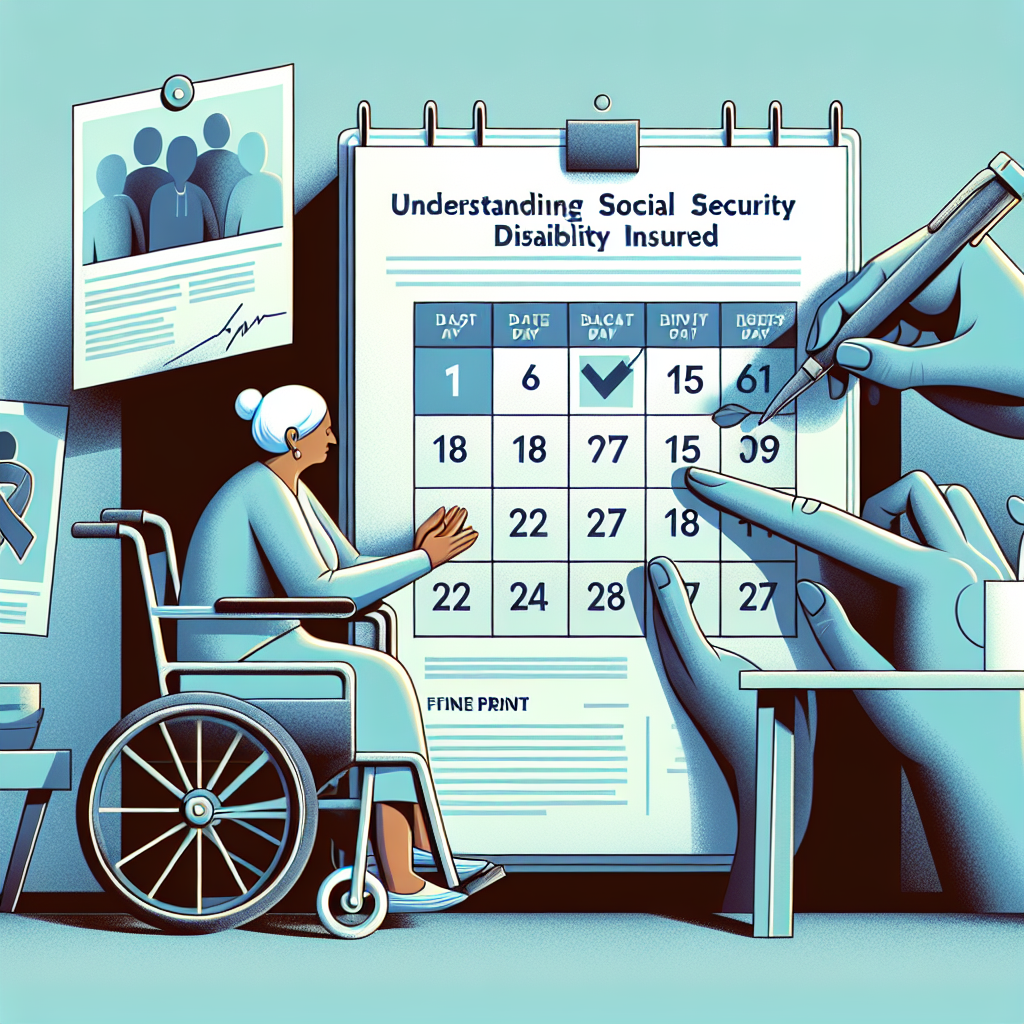Filed under Health Insurance on
Understanding Health Insurance on Long-Term Disability

Navigating the complexities of health insurance while on long-term disability can be an overwhelming experience. Many who find themselves in this situation may question whether their health coverage remains intact, or worse, if they will encounter unexpected out-of-pocket expenses. Understanding health insurance on long-term disability is crucial for securing your financial and physical well-being during challenging times.
What is Long-Term Disability Insurance?
Long-term disability insurance is designed to provide income replacement when an individual is unable to work due to a disability that lasts more than a few months. This type of insurance aims to ease the financial burden by covering a portion of your salary, thereby allowing you to manage living expenses without relying solely on savings.
The Role of Health Insurance in Long-Term Disability
Having robust health insurance on long-term disability plays a pivotal role in managing healthcare costs. When on long-term disability, your health insurance could either remain the same, see changes, or require you to seek alternative options based on your provider or employment situation. Knowing what to expect will aid in maintaining your peace of mind during this phase.
Types of Health Insurance Options on Long-Term Disability
There are several pathways to maintain health insurance while on long-term disability:
- Employer-Provided Health Insurance: Some employers may continue offering health insurance benefits when you transition to long-term disability status, although the terms and duration can vary.
- COBRA Continuation Coverage: After leaving an employer due to disability, COBRA allows you to temporarily continue your healthcare coverage for typically up to 18 months, albeit often at a higher premium.
- Medicare and Medicaid: Depending on your situation, you may qualify for Medicare after 24 months of receiving Social Security Disability Benefits, or Medicaid, which offers coverage to individuals with low income.
- Private Health Insurance: Securing an individual health insurance plan through the marketplace is another alternative, especially if you're not eligible for other forms of coverage.
Maintaining Coverage Complete with Employer Health Insurance
Many employers keep health insurance on long-term disability as part of their benefits package. However, coverage specifics often depend on company policies and your work contract. It is prudent to consult your employer’s human resources department to better understand any changes or actions necessary to maintain your health insurance on long-term disability.
Understanding COBRA Coverage
COBRA, or the Consolidated Omnibus Budget Reconciliation Act, provides an opportunity to extend your employer-provided health insurance. Though it can be a more expensive option due to the employer no longer subsidizing any part of the premium, it allows for the continuation of familiar coverage with the same network of healthcare providers.
Requirements and Limitations
It's important to recognize the timeframe in which you need to elect COBRA—which typically must be done within 60 days of loss of coverage. Failure to elect COBRA coverage in a timely fashion could result in loss of continued health insurance on long-term disability.
Exploring Government Programs: Medicare and Medicaid
Government programs like Medicare and Medicaid offer invaluable health coverage options for individuals who are on long-term disability.
Medicare Eligibility for Disabled Individuals
Individuals receiving Social Security Disability Insurance (SSDI) are generally eligible for Medicare 24 months after their SSDI benefits commence. Understanding how Medicare coordinates with your existing long-term disability insurance is crucial, as it may serve as a supplement or an alternative, depending on your needs and current coverage.
Diving Into Medicaid Benefits
Eligibility for Medicaid varies based on income and household size. It can provide essential health coverage for those on long-term disability who meet state-specific criteria. Medicaid serves as a lifeline by covering a broad range of health services and expenses.
Evaluating Private Health Insurance Options
When employer-based or government-provided health insurance options are unavailable or insufficient, turning to private health insurance can bridge the gap. Choosing the right private health insurance plan requires evaluating the costs, coverage options, and healthcare networks that align with your medical needs while on long-term disability.
Marketplace Insurance Plans
The health insurance marketplace offers a variety of plans categorized by metal tiers (Bronze, Silver, Gold, Platinum). When selecting a plan, consider the balance between premiums and out-of-pocket costs in the context of your health insurance needs on long-term disability. Whether you prioritize low premiums or minimal copayments and deductibles, this choice should cater to your financial and healthcare requirements.
Financial Assistance and Subsidies
The cost of maintaining health insurance on long-term disability can be mitigated through various forms of financial assistance:
- Premium Subsidies: If eligible, you may receive premium tax credits through the marketplace to lower monthly costs.
- Medicare Savings Programs: These can help with Medicare-related expenses, including premiums, deductibles, and coinsurance for individuals with limited means.
- Community Resources: Non-profits and local health clinics often have programs to aid in healthcare costs or provide necessary services at reduced rates.
Strategies for Maintaining Long-Term Health Coverage
To effectively manage your health insurance on long-term disability, consider these strategies:
- Consult with HR for a thorough understanding of your options under employer-provided plans.
- Act swiftly to elect COBRA coverage if it fits your needs, ensuring no lapse in coverage.
- Explore eligibility for Medicare or Medicaid early to avoid surprises in coverage availability.
- Compare private insurance plans thoroughly to decide which meets your budget and healthcare requirements.
- Take advantage of financial assistance and community resources to ease financial pressures.
Ultimately, understanding health insurance on long-term disability is about proactivity and informed decision-making. Familiarizing yourself with all available options and potential financial aids is key to preserving your health and financial security. Continuous research and periodic reassessment of your coverage can offer peace of mind, ensuring you are adequately protected while concentrating on recovery and well-being.





